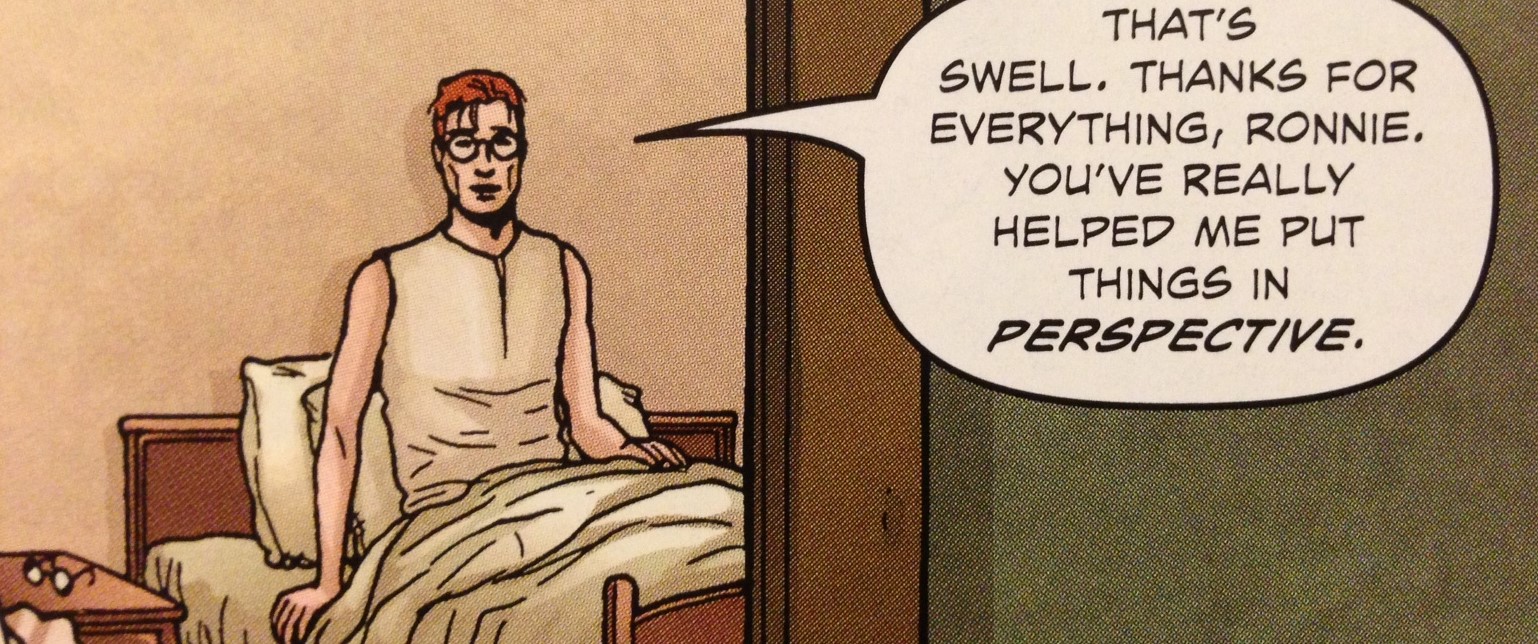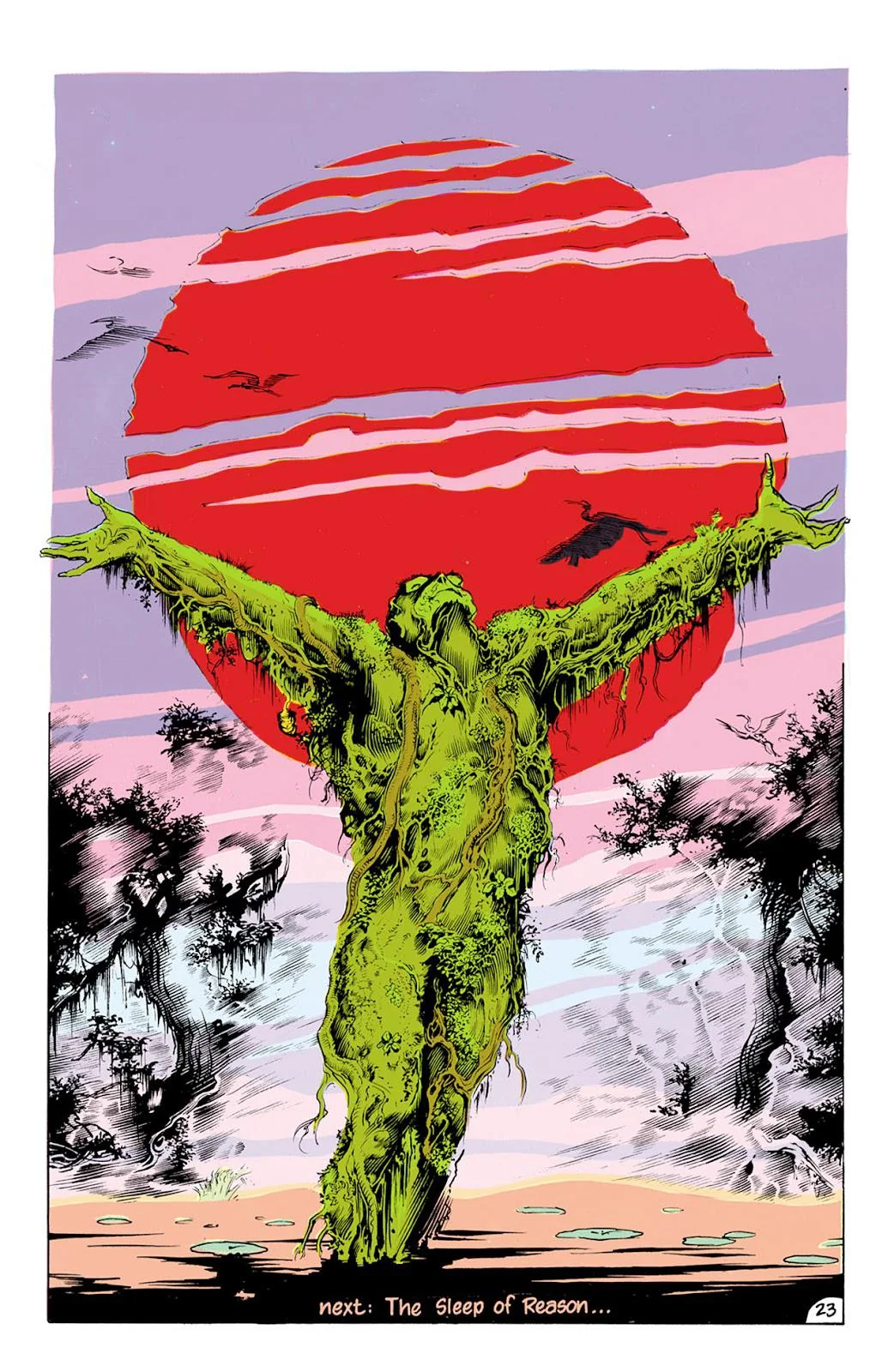"Demanding Perfection:" On Choosing Principles Over Palatability 「要求完美」:如何選擇原則而非可接受性
 需要(在政治方面)有「做點事」的感覺不小心的話會讓你很容易被利用
需要(在政治方面)有「做點事」的感覺不小心的話會讓你很容易被利用
When I was a child, autonomous organizing was out of the question for me as someone who grew up in an abusive family. Even after becoming an adult, my parents would not let me go outside on my own, and when they did I not only had to do it according to their schedule, but also couldn't associate with people they did not approve of—that is to say, anybody whose goal wasn't to succeed “like normal” under the colonial, white supremacist, capitalist system was off limits. If I wanted to mess with politics, it could only be for helping me to get into a good school or into a good job. So for most of my life, social media was the only place I was active politically. It socialized me into reductive and antagonistic terms of engagement, and I was always looking to follow the accounts that yelled the most at the most people, thinking that those who always lost their temper at the drop of a hat over any amount of social injustice, no matter how small, were the one who were most committed to criticizing society. And as soon as someone got angry at me, I compulsively forced myself to change my mind.
小時候,做自治的組織行動對在虐待性家庭長大的我是絕對不可能的事。甚至是成年了之後,我的父母都不會讓我自己出門,而且出門的時候不僅要按照他們的時間,也不能跟他們不接受的人結交—也就是說,任何目的不是在殖民、白人至上主義的資本主義系統之下得到「正常」成功的人都禁止入生。要搞政治,必須只能為了幫助我進好學校或是找到好工作。因此,大半輩子 SNS 是我唯一有積極參與政治的地方。它的社會化讓我習慣簡化性和對抗性的互動標準,而我一直都在尋找最會罵最多人的帳戶去追隨,以為最常為了不管多麼大小的社會不公發脾氣的人就是最投入社會批評的人。而且一當別人生氣,我就強迫自己馬上改變意見。
I told myself it wasn't fawning, it was refusing to tone police. I bought into the functionally abusive form of accountability called “deference politics,” because I didn't think I was qualified to do anything but to defer. I had no political principles, because I did not think I had the ability to arrive at “the correct” political principles, because I had no political self-esteem. I did not think I was allowed to think or do anything unless it was perfectly correct according to everyone else's standards of social justice or die, because I did not think I deserved to have autonomy.
我跟自己說這不是在討好,這是在拒絕管制語氣。我完全相信了作用是虐待的「服從政治」問責模式,因為我認為除了服從我什麼都沒資格去做。我沒有政治原則,因為我認為自己沒有能力找到「正確」的政治原則,因為我沒有政治的自我肯定。我認為除非是完全符合大家的社會正義標準的話我什麼東西都完全不能去做完全不能去想,因為我認為自己沒有資格擁有自治力。
This isn't an inspiring story about how I reached complete recovery. This is a story about how many times I broke myself for other people to get to where I'm at.
這不是我如何得到完全康復激勵人心的故事。這是我為了別人破壞自己多少次才能到現在的地步的故事。
When I escaped from home and started autonomously organizing offline, I had sort of this idealized image of the local organizing scene, because in comparison to the community of deference politickers I left, it seemed so perfect online. In my heart, I thought: “I failed to be perfect for the deference politickers, but I can try being perfect here.”
當我逃出家之後開始在線下參與自治組織的行動,我對當地的組織圈子有點理想化的印象,因為跟我離開的服從政治活動家的社群比,他們在網路上看起來很完美。心裡想:「為了那些服從政治活動家我失敗做出完美,但在這裡做出完美可以再去試。」
I fall in love with my first project. The comrades there aren't perfect, but for the first time, I feel like I'm Doing Something. I join my first affinity group, and pretend I'm okay that they're almost all white, pretend this isn't a reproduction of the white supremacist conditions of this white-dominated city, pretend that I never grew up militantly refusing to befriend white people after my mom told me a white doctor made fun of her accent, pretend I can be perfectly normal about all this for them. Because all we have is each other. Because besides them I have nobody else.
我愛上了弟一個項目。那裡的同志確實不完美,但我第一次感覺到自己在「做點事」。我加入了第一個同寅組織,假裝他們幾乎全部是白人不是個問題、假裝這不是這白人主導的城市的白人至上狀態的再生產、假裝自從我媽媽跟我提過白醫生嘲笑她的腔之後我從來沒有好鬥地拒絕跟白人做朋友、假裝為了他們我能把這當作是完全的正常。因為我們唯一擁有的就是彼此。因為除了他們我誰都沒有。
I fuck up with my first project. I find out my affinity group may have accidentally helped one homeless comrade rob another in camp. Even though my affinity group says it's a problem for the camp to solve, I insist on confirming the truth and making amends, and talk to the camp about it with a comrade outside the affinity group. It turns out to be a misunderstanding, but the comrade accused of stealing ends all contact with me afterwards. I do not forgive myself for this result. I ban myself from working with both the camp and my affinity group forever. I'm back to having no one again.
我搞砸了第一個項目。我發現我的同寅組織可能不小心幫了一個無家可歸的同志在營地偷了別人的東西。雖然同寅組織說這是營地人該解決的問題,我堅持要確定真實和給予補償,跟同寅組織外的同志一起去跟營地人談一談。結果是誤會,可是被控告偷東西的同志跟我斷聯。得到這樣的結果我無法原諒自己。我永遠禁止自己跟營地人和我的同寅組織合作。我回到完全沒有別人的生活。
And then I have a psychotic break. I delete or leave all my social media accounts because I'm afraid of what I'll say to other people. This lasts for about an year. And when I come back to social media, I'm completely raw. Every interaction terrifies me. If I can't even trust my basic perception of material reality, how can I trust my perceptions on a social and political level? But I learn to live without that trust. Because all I have is myself. My damned-to-be-imperfect self.
然後我的思覺又突然失調。因為害怕自己會對別人說的話我刪掉或離開所有的 SNS 帳戶。這樣的狀態大概持續了一年。然後當我回到 SNS 的時候,感覺是完全的刺痛。每一個互動都讓我害怕到不行。如果我連物質現實的知覺都不能信任,怎麼能信任自己對社會和政治的觀念?但我學會在沒有那信任的狀態之下繼續生活。因為我唯一擁有的只有自己。我注定無法完美的自己。
I fall in love with my second project. It's even more glorious than the first. It drives me crazy in all the right ways. And it connects me to new comrades and a third project I fall in love with. For the first time, I even get close enough to some of those comrades to call them friends. And just when I think it will last, everything blows up in my face in quick succession. I civilly try to tell Comrade-friend 1 not to use the term “narcissistic abuse” because it's Cluster B sanism, and when I express my sadness over 1's refusal to stop using it, 1 weaponizes my own personality disorder against me and accuses me of symptomatically demanding perfection. Comrade-friend 2 and I fall into a student-mentor dynamic, in which 2 acts as my guide to the local organizing scene. 2 starts telling me how a bunch of comrades I'm one to two degrees of separation from are or are covering for abusers, rapists and the like. And even though all of the accusations are true, even though I always want to hear those warnings, by the time I'm done distancing myself from those people, I have almost no one left but 2.
我愛上了第二個項目。比第一個項目還要更榮美。它讓我發了最對的瘋。而且它也讓我接觸到新的同志和第三個被我愛上的項目。我第一次跟其中一些同志們親近到能說他們是朋友。然後正當我認為能在這樣的狀態繼續過下去,就碰到了一個又一個的失算。我很客氣地跟同志朋友 1 號說不要用「自戀型虐待」這一詞,因為是對 B 型人格疾患的精神障礙歧視,而當我向 1 號對停用的拒絕表示悲傷,1 號利用我自己的人格障礙來批評我說我是根據症狀性地在要求完美。同志朋友 2 號和我開始了學生和導師的動態,之中 2 號作為我的當地組織圈子嚮導。2 號開始告訴我一大堆我有一到二度分隔的同志自己是或是在幫忙掩護虐待者、強暴者等等。雖然那些控告全都是真的、雖然那些警告我一直都會想聽,當我和那些人疏遠完之後,身邊就快要只剩下 2 號了。
One day, when 2 is breaking the news to me about another rapist-abuser, we have a fight. 2 accuses me of being an abuse apologist, over details I refuse to share publicly. And I'm aware this means some people will think this means I'm selectively redacting details to make it look like I'm not really an abuse apologist. And I'm aware that preemptively adding that disclaimer also looks performative. I don't expect you to take my side. I'm not telling this story because it's right, I'm telling it because it's true.
有一天,當 2 號在跟我說另一個強暴和虐待者的消息,我們吵起了架。 2 號指責我是虐待辯護者,細節我不願意公開分享。我也知道這樣會讓某些人認為我是在有選擇地刪減內容為了要讓自己看起來不是虐待辯護者。也知道先發制人地加上那個免責聲明會看起來很操演性。我不指望你跟我站在同一邊。我說這個故事的原因不是因為正確,而是真實。
So 2 and I stop working together. And I'm obsessive about trying to figure out whether or not 2 was right to call me an abuse apologist. I'm an abuse survivor. I need to have solidarity with other survivors. It's personal. But I can't force myself to agree with 2. And I hate myself for it. And then 2 gets accused of being a sexual predator. And others come forward with stories of being abused by 2. And then I think about all the other things I could say about 2 that I won't in public that made me question why I wanted 2's approval so much, why it felt like I was nothing when 2 left. And then I hate myself even more, for having been played.
因此 2 號跟我不再一起合作了。而且我一直不停地試圖搞清楚 2 號說我是虐待辯護者到底有沒有錯。我自己是虐待倖存者。我必須跟其他的倖存者團結一致。是私人恩怨。可是我就是逼不了自己跟 2 號同意。我也為此痛恨自己。然後 2 號被指告是性掠奪者。然後其他人跑出來說有被 2 號虐待。然後我開始想到其他我能但是拒絕在公開的地方說關於 2 號的事,讓我懷疑當時為什麼那麼要 2 號的讚賞、為什麼 2 號走了之後讓我覺得自己什麼都不是。然後我又再次痛恨自己,因為自己被耍了。
A comrade invites me to join another project. And I do not fall in love with it. But I stay, thinking the love might come, eventually. It doesn't. It is the most disorganized, white, liberal, reformist, and politically toothless “autonomous” project I have ever been on, and I was a fool to think my influence would have changed anything. I thought work would be the only place where I'd routinely be the only person in the room with a problem, politically. I was not expecting that treatment from people who insisted I was their comrade. “Comrade”—that word didn't mean a damn thing anymore. To them, a “comrade” was someone they could use. A body on the ground. A vessel to be sacrificed for The Cause. Not someone who struggled by their side with shared affinity. “Affinity” didn't mean a damn thing anymore. “Affinity” for them really just meant affection—and affection meant “we like you, do things that we like, or we're going to treat you like you don't exist.”
一位同志邀請我加入另一個項目。我並沒有愛上它。可是我決定待下來,想說愛可能會慢慢出現。但沒有。它是我參與最毫無計劃、最白、最自由派、最改良派和最沒有政治權力的「自治」項目,而且認為我的影響能改變任何這些東西是我在傻。我以為只有工作才會是我一直要當房間裡唯一有政治方面問題的人的地方。想不到堅持說我是他們的同志的人會那樣對待我。「同志」—那一詞變成了死都沒有意思。對他們來說,「同志」就是有用的人。現場現的身。為了偉大的事業能被犧牲的寄託者。不是在身邊一起鬥爭,跟他們有共同的同寅的人。「同寅」變成了死都沒有意思。他們「同寅」的意味只不過是感情—而且感情的意味是:「我們喜歡你,繼續做出我們喜歡的東西,不然我們會把你當作是空氣。」
The day I finally quit that crew, I went on a pilgrimage back to the place where I fell in love with my first project. It has an abandoned water tower, with a long ladder you climb down into total darkness. I remember back then, the first time I went down there with my affinity group, I was so afraid. It was just so overwhelming, not being able to see what was ahead of you, even with a flashlight. But this time I was not afraid. I knew what to expect from the dark. This time I went down alone, and made it all the way to the back of the water tower. And when I made it to the back, I turned around out of curiosity, and witnessed how the sunlight still streamed down from the top of the ladder, realizing that from this angle, the water tower was actually not that dark on the inside. I realized that was what autonomous organizing had felt like for me—how I felt so trapped by all the things that overwhelmed me, that I forgot to look at how far I'd come.
我終於退出那群人之後的那一天,我去訪問愛上第一個項目的地點。那裡有個被遺棄的水塔,裡頭有長長的梯子讓你爬下去進入完全的黑暗。我記得那時候,跟我的同寅組織第一次爬下去,害怕得不得了。就是連有了手電筒都看不見前面有什麼東西,超不能忍受。可是這次我不怕。我知道黑暗會是怎麼樣。這次我自己下去,完全走到水塔的最後面。然後走到後面時,我好奇地轉過來,目擊到陽光從梯子的最上面還是能照得下來,發現從這個角度來看,水塔的裡面其實不太暗。我發覺這就是參與自治組織行動給我的感覺—感覺一直被忍受不了的事情困住,困到忘了看看自己已經走了多遠。
Quitting the project I could not love suddenly freed up so much time for me. I filled it ravenously with things that kept my daggers drawn. It wasn't because I needed to Do Something. It was because, for the first time in my life, I was never clearer about the specific things I wanted to do. I understand, when my options for “comrades” in this city are more often than not people who weaponize “affinity” to discipline you into following their radical or reactionary “autonomous” party line, “all we have is each other” feels like a hostage situation. And I now understand, if what I actually want is revolution, then to let these people make me feel ashamed for wanting more is unprincipled behavior.
退出我愛不上的項目突然讓我奪回了很多時間。我貪婪地用劍拔弩張的事把空填滿。不是因為自己需要「做點事」。是因為這是我生活中第一次那麼徹底地明白自己特別想要做的事。我了解,當我在這個城市中能選擇的「同志」往往都是利用「同寅」來規訓你遵循他們的激進或反動的「自治」路線的人,「我們唯一擁有的就是彼此」感覺就是挾持人質。我現在也了解,如果我真正要的是革命的話,讓這些人讓我因為想要更多而感到羞恥是沒有原則的行為。
Because revolution is not about you coming across as correct—as palatable—to “the masses” or to your comrades in “the cadre.” Revolution is about actually ending the social and material conditions of domination and exploitation that organize the world. And to move with principle is to move with militant clarity on that matter—even if you have to move alone. And to ask that clarity of your comrades is not demanding perfection. It is asking for the bare minimum of revolution. And if revolution is not your bare minimum—if all you want is just to be Doing Something, and to be cheered on for doing that—I am not going to be your enabler. Because god knows I have already enabled myself too much.
因為革命需要的不是讓「群眾」或在「幹部」中的同志感到你的正確—你的可接受性。革命需要的是在實際上結束組織世界的主宰和剝削性的社會和物質狀態。按照原則來行動也就是行動的時候要按照好鬥性的清晰思路去搞懂那件事—就算剩下能行動的人就只有你。而要求你的同志們擁有那樣的清晰思路不是在要求完美。是在要求革命的最低限度。而如果革命不是你的最低限度—如果你唯一要的只是來「做點事」然後被鼓勵—我不要當你的縱容者。天曉得我已經自我縱容了太多次。

